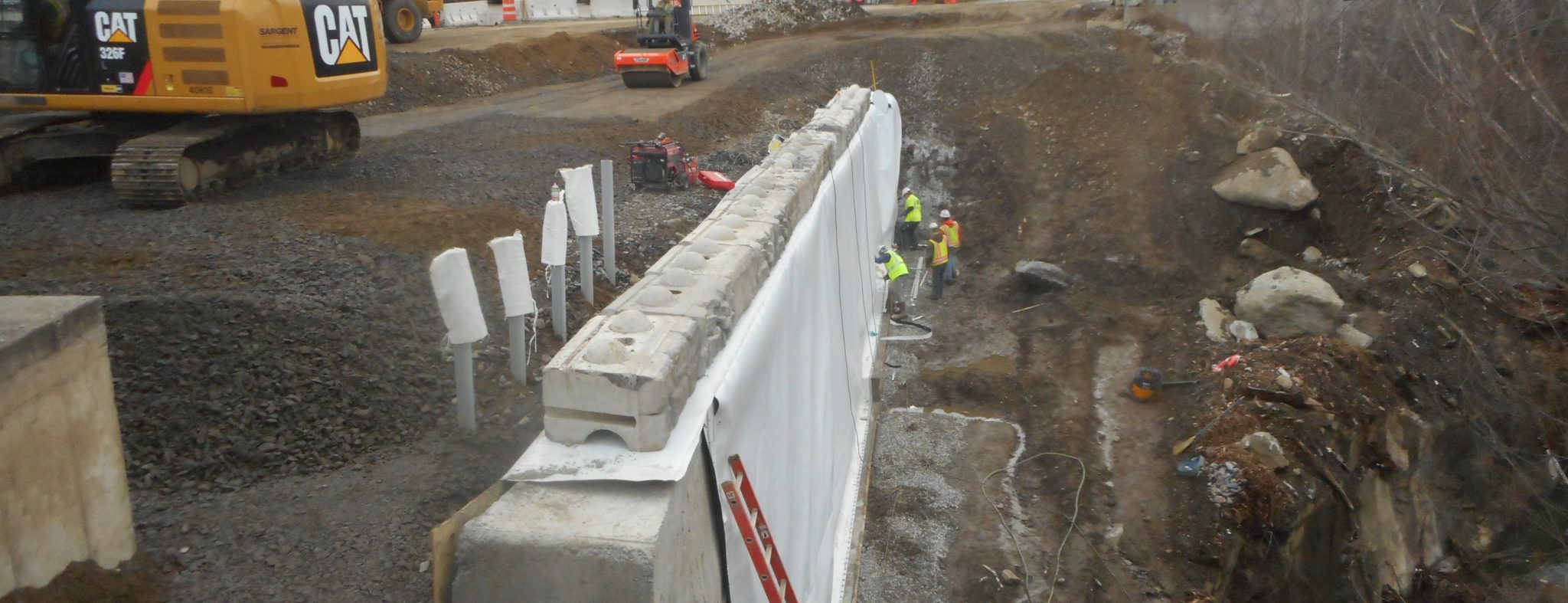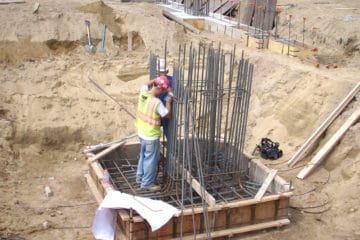Why Hiring a Geo Tech Engineer is Essential for Facility Building Projects
Why Hiring a Geo Tech Engineer is Essential for Facility Building Projects
Blog Article
Recognizing the Crucial Duty of the Geotechnical Market in Modern Building And Construction Projects and Framework Advancement
The geotechnical market is a cornerstone of contemporary building and infrastructure growth, offering essential understandings into dirt habits that straight affect task outcomes. Through innovative soil evaluations and ingenious design options, geotechnical specialists not only ensure architectural honesty yet additionally address sustainability concerns amidst evolving environmental requirements.
Importance of Dirt Analysis
Soil evaluation plays a vital role in the geotechnical sector, acting as the structure for educated decision-making in building and construction projects. Accurate soil evaluation is important for determining the suitability of a site for various kinds of structures, including domestic homes, business structures, and bridges. By examining soil composition, strength, wetness, and density material, designers can expect prospective difficulties and alleviate threats connected with ground instability, disintegration, and negotiation.
The assessment process commonly includes a collection of examinations and observations that supply essential details concerning the subsurface conditions. This data notifies the design and construction processes, ensuring that structures are built on strong ground with ample assistance. Comprehending the soil account makes it possible for designers to choose ideal building and construction methods and products, maximizing resource application and reducing costs.
In enhancement to making sure structural integrity, dirt assessment adds to environmental sustainability. By determining prospective contamination or unfavorable impacts on bordering environments, designers can carry out methods to secure these all-natural resources. Generally, detailed soil assessment is essential in the geotechnical field, underpinning the security, effectiveness, and ecological obligation of construction jobs.
Key Geotechnical Techniques
A range of vital geotechnical strategies are used to boost the stability and examine and performance of construction websites. One foundational approach is soil sampling and screening, which allows engineers to determine the physical and chemical properties of the ground. This information is essential for making informed decisions pertaining to foundation layout and building and construction methods.
Another crucial strategy is website characterization, which entails the detailed assessment of dirt and rock conditions through methods such as borehole boring and in-situ screening. Techniques like Criterion Infiltration Examinations (SPT) and Cone Penetration Tests (CPT) give important information on soil toughness and stratigraphy.
Ground improvement methods, such as soil stablizing and grouting, are likewise important in enhancing the load-bearing ability of weak soils. These methods can reduce settlement and improve total website conditions.
In addition, incline security analysis is vital for recognizing potential landslide risks and making sure the security of excavations. This evaluation commonly utilizes mathematical modeling and restriction equilibrium methods to forecast soil actions under different problems.
Including these geotechnical methods right into construction preparation not just optimizes task results yet likewise makes certain the long-term sustainability of framework growth.
Effect on Building And Construction Safety

Moreover, reliable geotechnical design entails carrying out reduction approaches for recognized threats. This may include soil stablizing strategies, preserving structures, or drainage systems to minimize hydrostatic pressure. By resolving these aspects, building and construction teams can decrease the probability of mishaps and boost employee safety and security.
Furthermore, continuous tracking of site conditions is essential throughout building. Geotechnical instruments can supply real-time information regarding ground activity and stability, enabling prompt treatments when necessary.
Essentially, the geotechnical sector plays a crucial function in safeguarding building and construction projects. By focusing on ground honesty and using extensive analysis approaches, the geotechnical field not just secures the workforce however likewise adds to the long life and dependability of created infrastructure.
Sustainability in Geotechnical Practices

Moreover, geotechnical engineers are currently employing sophisticated modern technologies, such as geosynthetics, which enhance soil security while lowering the volume of product required. This not only preserves resources however likewise brings about much less waste generation (engineer of record). The assimilation of sustainable layout principles into geotechnical engineering motivates using consulting engineer renewable resource sources in building processes, even more minimizing carbon exhausts
Furthermore, extensive website evaluations are essential for determining prospective environmental impacts prior to construction begins. By performing these evaluations, geotechnical specialists can create strategies that mitigate unfavorable effects, making certain compliance with environmental laws. Overall, the emphasis on sustainability within geotechnical techniques not just adds to the long life and resilience of infrastructure yet also promotes a liable method to land and source administration. This commitment is essential for promoting sustainable advancement in the modern-day construction landscape.
Future Trends in Geotechnical Design
Advancement is driving the future of geotechnical engineering, as arising innovations and methods improve the sector. The combination of sophisticated information analytics and expert system is set to change site examination and threat analysis, making it possible for designers to make even more informed decisions based on real-time information. Moreover, the usage of geosynthetic materials is gaining traction, supplying lasting services that boost soil stability and minimize environmental effect.
One more considerable fad is the adoption of automated and robotic systems for tracking and construction processes. These innovations not just boost accuracy but likewise enhance security by reducing human participation in hazardous environments. Furthermore, the execution of Building Details Modeling (BIM) in geotechnical layout facilitates improved collaboration amongst stakeholders, optimizing project shipment and decreasing costs.
As climate change positions brand-new difficulties, the market is progressively concentrating on durability and versatility in design techniques, making certain framework can endure extreme climate occasions. Ultimately, the ongoing trend towards sustainability will certainly drive innovation in eco-friendly products and techniques, straightening geotechnical engineering with more comprehensive environmental objectives. Collectively, these fads will certainly form an extra reliable, sustainable, and resilient geotechnical landscape for future tasks.
Final Thought

The geotechnical industry is a cornerstone of modern building and framework advancement, supplying crucial insights into dirt behavior that straight influence project end results. geotechnical engineers.Soil analysis plays an important role in the geotechnical market, serving as the foundation for educated decision-making in building jobs. In general, complete soil assessment is indispensable in the geotechnical field, underpinning the security, performance, and ecological obligation of construction projects
Construction safety is considerably influenced by geotechnical practices, as the stability and integrity of the ground directly affect the general safety of a building site.In conclusion, the geotechnical sector is essential in modern-day building and construction and facilities advancement, giving crucial analyses that ensure architectural honesty and safety and security.
Report this page